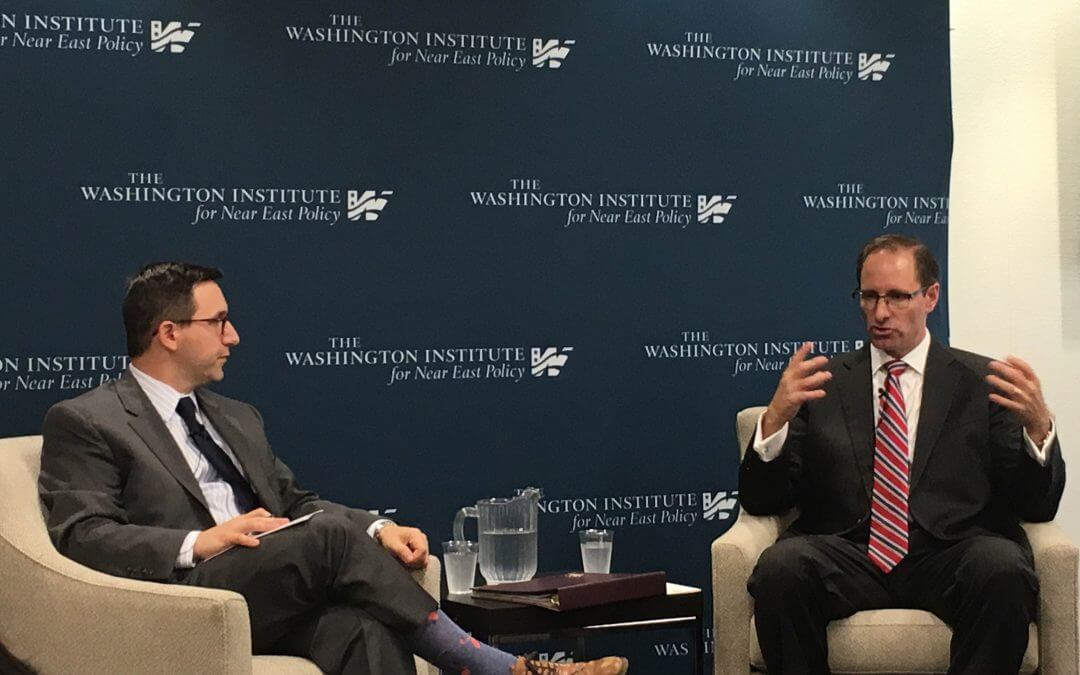WASHINGTON – As the FBI adapts its counterterrorism strategy in response to ISIS’ social media savvy and internet recruitment techniques, Hillary Clinton’s plans for fighting terrorism appear to be closer to law enforcement than Donald Trump’s.
FBI National Security Branch chief Michael B. Steinbach outlined how current technology has changed the terror threat since 9/11 during a talk Wednesday at the Washington Institute for Near East Policy. ISIS’ volume of online efforts, prominent social media use, and encryption use have forced the FBI to focus even more on the internet in preventing homegrown terrorist attacks, Steinbach said, and traditional investigative methods alone no longer work.
Since 9/11, national security agencies like the FBI has gone through fundamental paradigm shifts, Steinbach said, from a reactive to a preventative approach, to adapting to the anonymity of the internet, and having to deal with terrorists’ effective exploitation of social media.
This means Clinton’s plan to combat terrorism is in line with the FBI’s current strategy, whereas Trump adopts a different approach.
Trump has focused heavily on vetting and stemming the flow of immigrants from the Middle East as his counterterrorism plan.
However, Steinbach said the threat of foreign fighters in America is far less severe than in Europe, with homegrown violent extremism being the much greater concern. Additionally, he said “directed” attacks, where terrorists such as the Brussels shooter go abroad to receive training, are rare in America. More common are “inspired” attacks, such as the San Bernardino shooters, where terrorists obtain their information on the internet.
Steinbach also cited “enabled” style of attacks, when individuals use social media and crypto-communication to get the tools from others in order to carry out attacks. A lot of terrorist attacks in 2015 were the “enabled” type, he said.
Trump has only issued vague statements on how to combat radicalization and recruitment efforts online, stating in an Aug. 15 speech: “We cannot allow the internet to be used as a recruiting tool, and for other purposes, by our enemy – we must shut down their access to this form of communication, and we must do so immediately.” During a Republican presidential debate last December, he famously said he wanted to shut down parts of the internet as a method.
Rather than shutting down terrorist recruiters’ and potential recruits’ access to the internet, the FBI focuses on tracking their social media movements to pin them down.
Hence, Clinton’s plan – outlined on her website — to work with tech companies “to fight jihadist propaganda online, intercept ISIS communications, and track and analyze social media posts” while “protecting security and privacy”” hits closer to the FBI’s target.
Working with tech companies and balancing privacy and security is important in furthering the FBI’s efforts, Steinbach said. Developing one-off solutions like the FBI’s approach to the Apple case is “highly costly, prohibitive…not scalable” he said. “I don’t think the answer will ever be a technological solution without support of private companies.”


